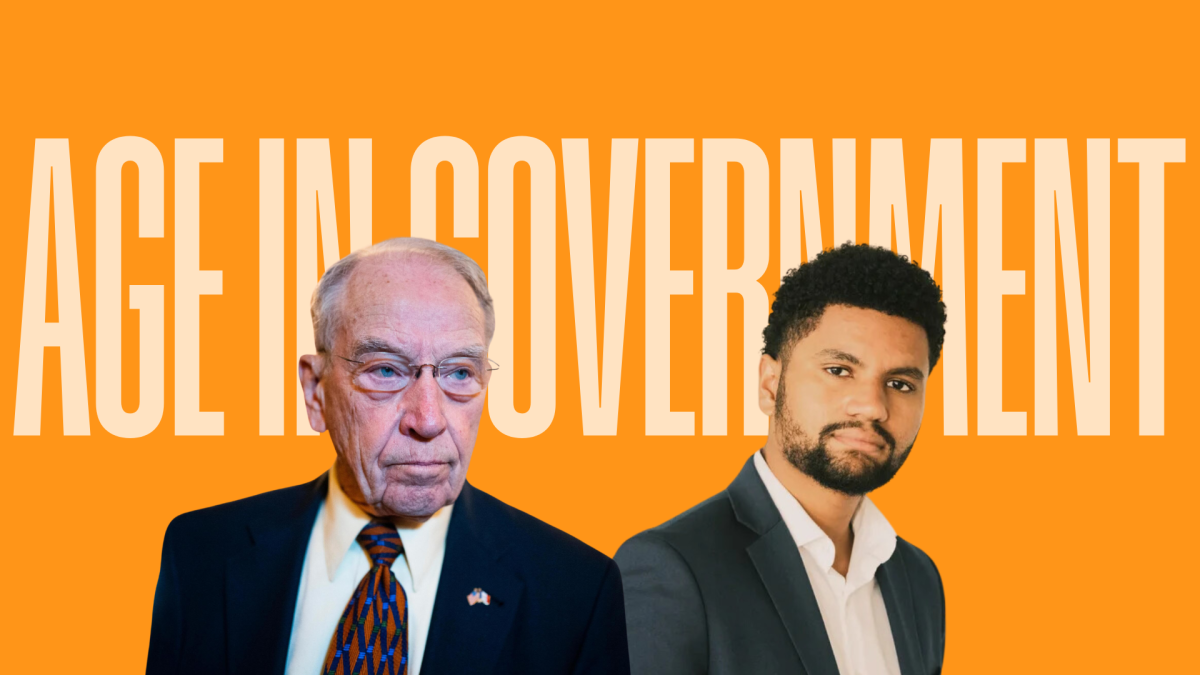Federal government officials are way too old and out of touch with modern issues, damaging our credibility on the global scale. The oldest Congress member is Iowa Senator Charles E. Grassley, who is 91 years old. As president pro tempore, he holds the second highest position in Congress, only under Vice President JD Vance. While he may seem like an outlier for his age, he represents a broader trend of aging federal elected officials. And while age may seem like the issue, the real fault lies in older politicians’ relevance and adaptability in our changing society. The future belongs to younger generations, yet elected officials who will not live to see the consequences of the policies they impose are dictating it.
According to the Pew Research Center, the median age of a United States senator is 64.7; if rounded up to 65, it is the same number the National Institute of Health (NIH) considers to be elderly. By contrast, the median age of U.S. citizens is just above half that of senators, at about 38 years. This gap creates a government increasingly out of touch with the concerns of young voters, especially in terms of technological advances. In a world where technology is rapidly advancing, the U.S. cannot afford to have elected officials who cannot keep up with the changing times and demands.
In an attempt to prevent stagnation in the government, the Trump administration created the Department of Government Efficiency (DOGE), headed by billionaire Elon Musk, intended to bring younger leaders into federal positions. However, instead of balancing youth with expertise, Musk is more focused on downsizing the government and hiring loyalists instead of qualified young professionals. This has led to carelessness in hiring, including the appointment of 25-year-old Marko Elez.
Elez previously worked at Musk’s companies SpaceX and X (formerly Twitter), proving his loyalty to Musk and his agenda. Recently, he became one of two temporary appointees at the Treasury Department connected to DOGE, which granted him access to a secure treasury system that handles trillions of dollars in payments annually. However, Elez resigned after the Wall Street Journal reported his connection to since-deleted racist social media posts. Under this account, Elez made racist claims like “Normalize Indian hate” and “You could not pay me to marry outside of my ethnicity.”
Ironically, Vice President Vance, who married an Indian American woman, Second Lady Usha Vance, defended Musk’s efforts to rehire Elez. Vance posted on X, “I obviously disagree with some of Elez’s posts, but I don’t think stupid social media activity should ruin a kid’s life.” Vance frames his defense as opposition to cancel culture, but it effectively prioritizes loyalty over ethical standards. Elez is not some random “kid” posting whatever comes to his mind in his basement. He is a federal government employee the Trump administration uplifts as a symbol of loyalty over ethical standards.
The rehiring of Elez, despite his racist posts, signifies that the federal government will hire employees that align with their agenda, regardless of the impact it has on public trust and morality. In this case, it is not Elez’s age that makes him unqualified or untrustworthy, but his harmful mentality and lack of social awareness. We cannot afford to replace outdated leaders with unqualified ones who fail to abide by proper ethical standards. Elez’s case highlights a dangerous reality, that the government is prioritizing political loyalty over honesty and virtue.
A much better example of the kind of young politician we ought to be amplifying is Florida Democratic Representative Maxwell Frost, the first Gen Z Congress member. Frost, who is 28 years old, has shaped his career around advocating for gun restrictions. Before being elected to Congress, Frost served as the National Organizing Director for March for Our Lives, giving him experience as a national leader. Frost’s background in grassroots organizing and advocacy around gun control proves that young leaders can be both experienced and innovative. His firsthand experience growing up in the 21st century allows him to understand the needs and desires of Gen Z, making him an effective representative of our generation.
As college students, it is our responsibility to vote for candidates who have an actual stake in our future and care about the issues that directly impact us. Together, by embracing a balanced approach that values experience, modern understandings and integrity, we can elect a government that accurately reflects the diversity of our generation.
Hailey Baker, FCRH’27, is a political science major from Gaithersburg, Md.










































































































































































































